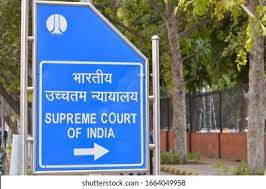The Food Inspector filed a charge sheet on 12th August 2011, and on the same day, cognizance of the offence was taken by the learned Judicial Magistrate, and a bailable warrant was issued against the appellant. The appellant filed a petition under Section 482 of the Code of Criminal Procedure, 1973 (for short, ‘CrPC’) for challenging the order of cognizance. By the impugned judgment, the High Court dismissed the petition under Section 482 of CrPC. The High Court noted that the offence alleged against the appellant was of misbranding which had taken place prior to the repeal of the PFA. Hence, within a period of three years from the date of repeal, the learned Magistrate was empowered to take cognizance in view of sub-section (4) of Section 97 of FSSA. Being aggrieved by the said decision of the High Court, the present appeal has been preferred. (Para 3)
In short, the allegation was that the label on the food product of the appellant was not in accordance with the requirements of the PFA and the Rules framed thereunder. Therefore, the definition of ‘misbranded’ under Section 2 (ix) will apply. Clause (ix) of Section 2 of PFA reads thus (Para 9)
In this case, on the day on which the alleged offence was committed, the offender could have been sentenced to imprisonment under Section 16 of the PFA and under the FSSA, he could have been directed to pay the penalty up to Rupees 3 lakhs. The punishment under PFA and the penalty under the FSSA cannot be imposed on the violator for the same misbranding because it will amount to double jeopardy, which is prohibited under Article 20(2) of the Constitution of India. Thus, when the penal action can be taken under both statutes, the question is which will prevail. An answer to the said question has been provided by Section 89 of the FSSA, which reads thus (Para 17)
The effect of Section 89 is that if there is an inconsistency between the provisions of the PFA and the FSSA, the provisions of the FSSA will have an overriding effect over the provisions of the PFA. When it comes to the consequences of misbranding, the same has been provided under both the enactments, and there is inconsistency in the enactments as regards the penal consequences of misbranding. As pointed out earlier, one provides for imposing only a penalty in terms of payment of money, and the other provides imprisonment for not less than six months. In view of the inconsistency, Section 89 of the FSSA will operate, and provisions of the FSSA will prevail over the provisions of the PFA to the extent to which the same are inconsistent. Thus, in a case where after coming into force of Section 52 of the FSSA, if an act of misbranding is committed by anyone, which is an offence punishable under Section 16 of PFA and which attracts penalty under Section 52 of the FSSA, Section 52 of the FSSA will override the provisions of PFA. Therefore, in such a situation, in view of the overriding effect given to the provisions of the FSSA, the violator who indulges in misbranding cannot be punished under the PFA and he will be liable to pay penalty under the FSSA in accordance with Section 52 thereof. (Para 18)
In paragraph 19 of the impugned judgment, the High Court has committed an error by holding that there is no inconsistency between the penal provisions relating to misbranding under the PFA and FSSA. Hence, in our view, the High Court ought to have quashed the proceedings of the prosecution of the appellant under Section 16 of the PFA. Accordingly, the impugned judgment and order dated 13th May 2016 is hereby set aside. The proceedings of Criminal Case No. 15830 of 2011 pending before the Special Judicial Magistrate, Indore, are hereby quashed. However, this judgment will not prevent the authorities under the FSSA from taking recourse to the provisions of Section 52 thereof in accordance with the law. (Para 21)
SUPREME COURT OF INDIA
2023 STPL(Web) 487 SC
[2023 INSC 1078]
Manik Hiru Jhangiani Vs. State Of M.P.
Criminal appeal no. 3864 of 2023 (Arising out of Special Leave Petition (Crl.) No. 7041 of 2016)-Decided on 14-12-2023
https://stpllaw.in/wp-content/uploads/2024/01/2023-STPLWeb-487-SC.pdf







